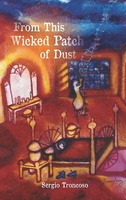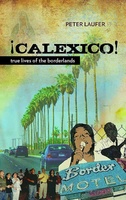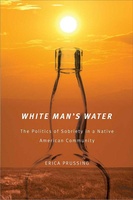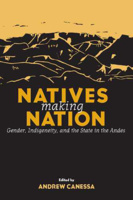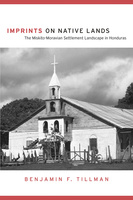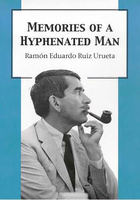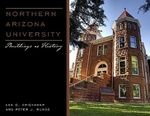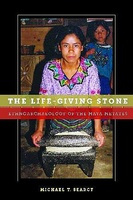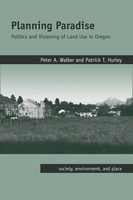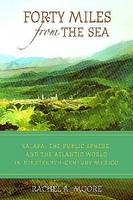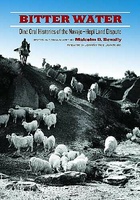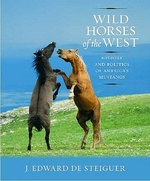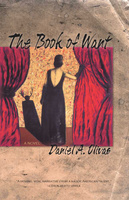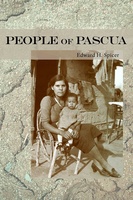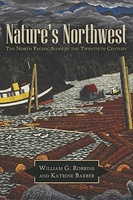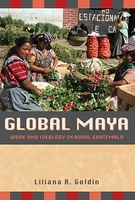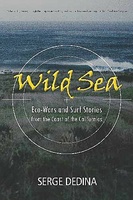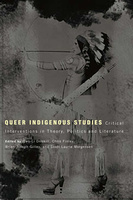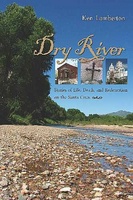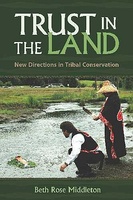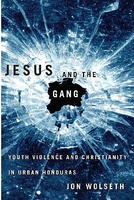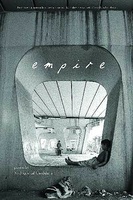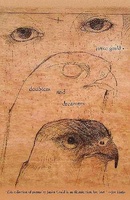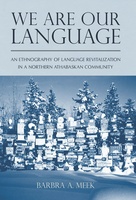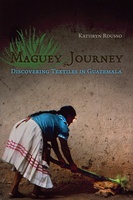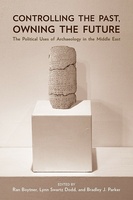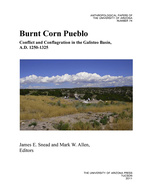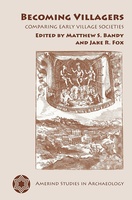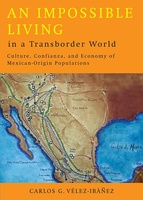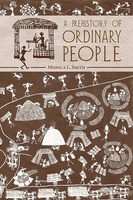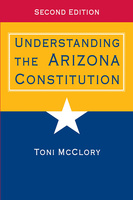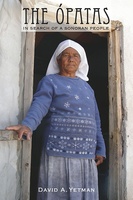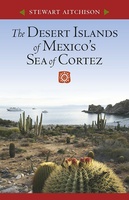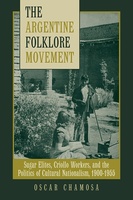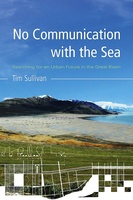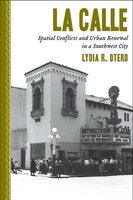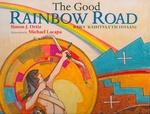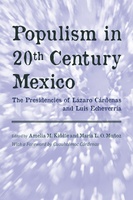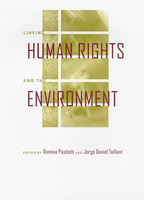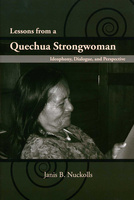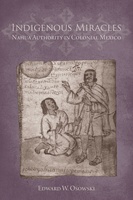The University of Arizona Press is the premier publisher of academic, regional, and literary works in the state of Arizona. They disseminate ideas and knowledge of lasting value that enrich understanding, inspire curiosity, and enlighten readers. They advance the University of Arizona’s mission by connecting scholarship and creative expression to readers worldwide.
Showing 851-900 of 1,704 items.
Mario Vargas Llosa
Public Intellectual in Neoliberal Latin America
The University of Arizona Press
Mario Vargas Llosa has enjoyed considerable influence in the political arena, thanks in no small part to his run for the Peruvian presidency in 1990. Though he was awarded the Nobel Prize in 2010 for his literary achievements, he is as well known in the Spanish-speaking world for his political columns as his novels. In his widely syndicated columns, Vargas Llosa asserts a “liberal” position, in the classical sense of affirming the importance of a free market and individual rights, though he has often aligned himself with groups that emphasize the former at the expense of the latter. While his early literary output seemed to proclaim an allegiance with the Left, Vargas Llosa took a right turn that Juan E. De Castro argues was anticipatory and representative of the Latin American embrace of the free market in the 1990s. Thus, Vargas Llosa’s political thought provides a key for understanding social and cultural shifts that have taken place throughout Latin America.
White Man's Water
The Politics of Sobriety in a Native American Community
The University of Arizona Press
Natives Making Nation
Gender, Indigeneity, and the State in the Andes
Edited by Andrew Canessa
The University of Arizona Press
Imprints on Native Lands
The Miskito-Moravian Settlement Landscape in Honduras
The University of Arizona Press
Ethnographic Contributions to the Study of Endangered Languages
Edited by Tania Granadillo and Heidi A. Orcutt-Gachiri
The University of Arizona Press
The eleven case studies assembled here strive to fill a gap in the study of endangered languages by providing much-needed sociohistorical and ethnographic context and thus connecting specific language phenomena to larger national and international issues.
Northern Arizona University
Buildings as History
By Lee C. Drickamer and Peter J. Runge
The University of Arizona Press
Planning Paradise
Politics and Visioning of Land Use in Oregon
By Peter A. Walker and Patrick T. Hurley
The University of Arizona Press
Forty Miles from the Sea
Xalapa, the Public Sphere, and the Atlantic World in Nineteenth-Century Mexico
The University of Arizona Press
Bitter Water
Diné Oral Histories of the Navajo-Hopi Land Dispute
Edited by Malcolm D. Benally; Foreword by Jennifer Nez Denetdale
The University of Arizona Press
Wild Horses of the West
History and Politics of America's Mustangs
The University of Arizona Press
The Neolithic Revolution in the Near East
Transforming the Human Landscape
By Alan H. Simmons; Foreword by Ofer Bar-Yosef
The University of Arizona Press
Nature's Northwest
The North Pacific Slope in the Twentieth Century
By William G. Robbins and Katrine Barber
The University of Arizona Press
Wild Sea
Eco-Wars and Surf Stories from the Coast of the Californias
By Serge Dedina
The University of Arizona Press
Queer Indigenous Studies
Critical Interventions in Theory, Politics, and Literature
The University of Arizona Press
Jesus and the Gang
Youth Violence and Christianity in Urban Honduras
By Jon Wolseth
The University of Arizona Press
We Are Our Language
The University of Arizona Press
In presenting the case of Kaska, an endangered language in an Athapascan community in the Yukon, Barbra Meek asserts that language revitalization requires more than just linguistic rehabilitation; it demands a social transformation. The process must mend rips and tears in the social fabric of the language community that result from an enduring colonial history.
Exoplanets
Edited by Sara Seager
The University of Arizona Press
For the first time in human history, we are certain of the existence of planets around other stars. Exoplanets serves as both an introduction for the non-specialist and a foundation for the techniques and equations used in exoplanet observation by those dedicated to the field. This volume lays the foundation for the field’s continued growth.
Controlling the Past, Owning the Future
The Political Uses of Archaeology in the Middle East
The University of Arizona Press
Burnt Corn Pueblo
Conflict and Conflagration in the Galisteo Basin, A.D. 1250–1325
Edited by James E. Snead and Mark W. Allen
The University of Arizona Press
Becoming Villagers
Comparing Early Village Societies
Edited by Matthew S. Bandy and Jake R. Fox
The University of Arizona Press
An Impossible Living in a Transborder World
Culture, Confianza, and Economy of Mexican-Origin Populations
The University of Arizona Press
With this extensively researched book, Carlos Vélez-Ibáñez updates and expands upon his major 1983 study of rotating savings and credit associations (ROSCAs), incorporating new data that reflect the explosion of Mexican-origin populations in the United States. This book examines the way in which these practices are part of greater transnational economies and how these populations engage in—and suffer through—the twenty-first century global economy.
A Prehistory of Ordinary People
The University of Arizona Press
Monica L. Smith examines how the archaeological record of ordinary objects—used by ordinary people—constitutes a manifestation of humankind’s cognitive and social development. A Prehistory of Ordinary People offers an impressive synthesis and accessible style that will appeal to archaeologists, cultural anthropologists, and others interested in the long history of human decision-making.
The Argentine Folklore Movement
Sugar Elites, Criollo Workers, and the Politics of Cultural Nationalism, 1900–1955
The University of Arizona Press
No Communication with the Sea
Searching for an Urban Future in the Great Basin
By Tim Sullivan
The University of Arizona Press
torch song tango choir
The University of Arizona Press
These fine poems are connected by—and evoke—the music of lost homelands. Paegle, the daughter of immigrants from Argentina and Latvia, takes us through the tumult of displacement and migration with a strong sense for the folk songs and tango music of her youth.
The Good Rainbow Road
By Simon J. Ortiz; Illustrated by Michael Lacapa
The University of Arizona Press
Populism in Twentieth Century Mexico
The Presidencies of Lázaro Cárdenas and Luis Echeverría
The University of Arizona Press
Bring Down the Little Birds
On Mothering, Art, Work, and Everything Else
The University of Arizona Press
Combining fragments of thought, daydreams, entries from notebooks both real and imaginary, and real-life experiences, Carmen Giménez Smith interrogates everything involved in becoming and being a mother for both the first and second times. She wonders what her children will one day know about her own “secret life,” meditates on the physical effects of pregnancy, and questions the myths about, nostalgia for, and glorification of motherhood.
Linking Human Rights and the Environment
Edited by Romina Picolotti and Jorge Daniel Taillant
The University of Arizona Press
Lessons from a Quechua Strongwoman
Ideophony, Dialogue, and Perspective
The University of Arizona Press
Using the intriguing stories and words of an Ecuadoran Quechua-speaking woman, Janis B. Nuckolls reveals a complex language system in which ideophony, dialogue, and perspective are all at the core of cultural and grammatical communications among Amazonian Quechua speakers.
Stay Informed
Subscribe nowRecent News



